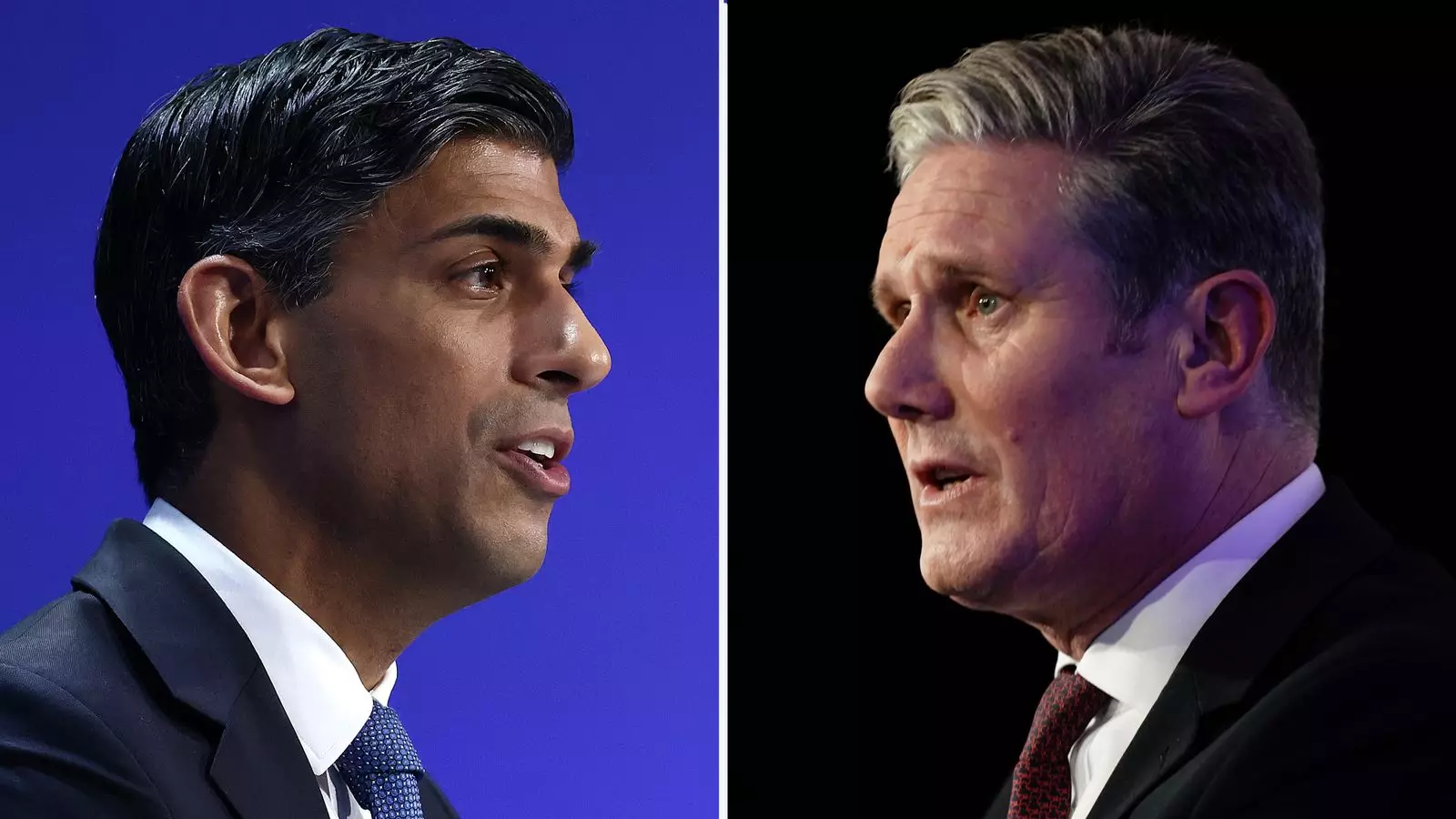Recent polling data reveals that there is a common belief among the public that the Conservative Party is more inclined to raise taxes compared to the Labour Party. The research conducted by Savanta prior to the first TV debate highlighted that a significant portion of respondents expressed skepticism towards the pledges made by both parties regarding the imposition of major taxes such as income tax, national insurance, and VAT. Surprisingly, 41% of individuals surveyed indicated that they do not trust either the Tories or Labour when it comes to promises of not implementing tax increases.
The online survey, which involved 2,217 UK adults aged 18 and above, portrayed a stark contrast in the perceived credibility of the two prominent political figures, Rishi Sunak and Sir Keir Starmer. Only one in six participants believed that Rishi Sunak would refrain from raising major taxes, while one in four individuals placed their trust in Sir Keir Starmer. The debate between Mr. Sunak and Sir Keir further accentuated the issue of tax policies, with contrasting viewpoints being presented to the viewers. Mr. Sunak continuously emphasized Labour’s purported lack of fiscal planning, suggesting that extensive tax increments would be essential under a Labour government. However, Sir Keir vehemently dismissed these claims, labelling them as baseless accusations.
The notion of a £38.5bn deficit that spans over four years has added fuel to the fire, as it forms a significant component of the ongoing dispute between the Conservative and Labour Parties. This figure, derived by impartial civil servants according to Mr. Sunak, has been subject to scrutiny and criticism from Labour representatives. A leaked note from the Treasury’s chief civil servant has cast doubts on the authenticity of the figures provided by the government, citing the absence of direct involvement of civil servants in the calculation process. The letter addressed to Darren Jones, Labour’s shadow chief secretary to the Treasury, emphasized the necessity for accurate representation of costings, highlighting the potential discrepancies in the figures presented by the Tories.
Interestingly, the Savanta poll observed a pattern among individuals aged over 55, who displayed the highest level of skepticism towards both major parties regarding their commitments to avoid tax hikes. This demographic group, which holds significant electoral influence, poses a crucial challenge for the Conservatives as they strive to secure support for their tax policies. Chris Hopkins, political research director at Savanta, acknowledged the strategic significance of older voters in the upcoming election, noting their skepticism towards the promises made by the Conservative Party in comparison to the Labour Party.
The prevailing misconception surrounding tax policies and the credibility of political figures underscores the complexity of public perception in the realm of fiscal planning. The conflicting narratives presented by the Conservative and Labour Parties have contributed to a sense of uncertainty among the electorate, particularly among older age groups who remain skeptical of campaign promises related to tax policies. As the electoral landscape evolves, it is imperative for political leaders to address the concerns of the public and foster transparency in their policy proposals to build trust and credibility among voters.



Leave a Reply